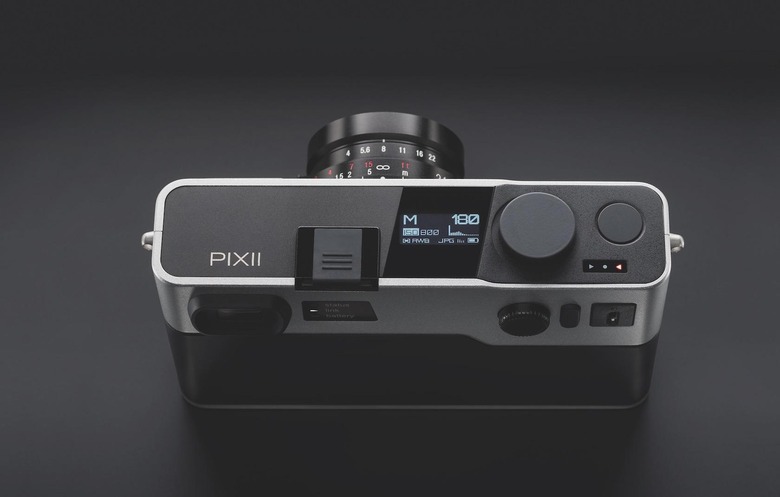Pixii Rangefinder Thinks You Value Leica Lenses Over A Display
The rangefinder camera might not be the first device you'd think was in need of a smartphone upgrade, but Pixii believes it's overdue. The French startup says that not only does the phone in your pocket make your standalone camera's screen surplus to requirements, but its storage, too.
The result is a camera that looks, at first glance, like a modern digital rangefinder. Pixii supports Leica M lenses and, courtesy of adapters, other – more affordable – lenses too. Zeiss and Voigtlander both make compatible glass, the company points out.
Not all of the specifications have been pinned down yet. The CMOS sensor has a 5.5 um pixel pitch, 12-bit sampling rate, and supports ISO 100 to 6400. However Pixii isn't talking about a specific number of megapixels yet.
What you don't get is a screen on the back by which you can frame shots or indeed review them afterwards. There's a viewfinder, but unlike most modern implementations it's not digital: instead it's a good old-fashioned optical one. Within that, there are LED backlit frame lines with exposure indicators.

The only display that Pixii actually has, in fact, is a small OLED panel on the top that shows settings like ISO and white balance. A manual shutter speed selector is included, too, but many of the settings are designed to be accessed via the companion smartphone app. It's that which shows your photos, stored either on the 8 GB or 32 GB of fixed internal storage the camera has, or synchronized automatically to your handset via WiFi b/g/n or Bluetooth.
"The digital camera hasn't changed much since the 90s," David Barth, Pixii's creator, argues. "But now the new generation is learning photography with a smartphone: who understands why a camera still needs to bother with a screen or an SD card?"
Barth's suggestion is that while good lenses stand the test of time, camera software and supplementary hardware like displays are more transient. Better, then, to hand those over to a smartphone, which is more likely to get regular upgrades. Meanwhile, Pixii itself keeps on taking RAW shots.
It's not the first time we've seen attempts to reinvent the standalone camera for the smartphone era. Relonch, for instance, tried to put the cloud to the forefront with its tradition-bucking camera, doing away with any sort of local review of the images captured in favor of uploading them, post-processing them, and then spitting the best of the results back the next day through the company's app. After a flashy trial preview, however, Relonch seemingly settled on pushing its editing AI in other ways.
If Pixii is to succeed, it'll need to be priced right. That's another detail the company is yet to confirm, saying that price and availability will be confirmed "in the coming weeks." If it can significantly undercut a Leica camera while still offering lens compatibility and anywhere close to overall image quality, that could still make it a success.
